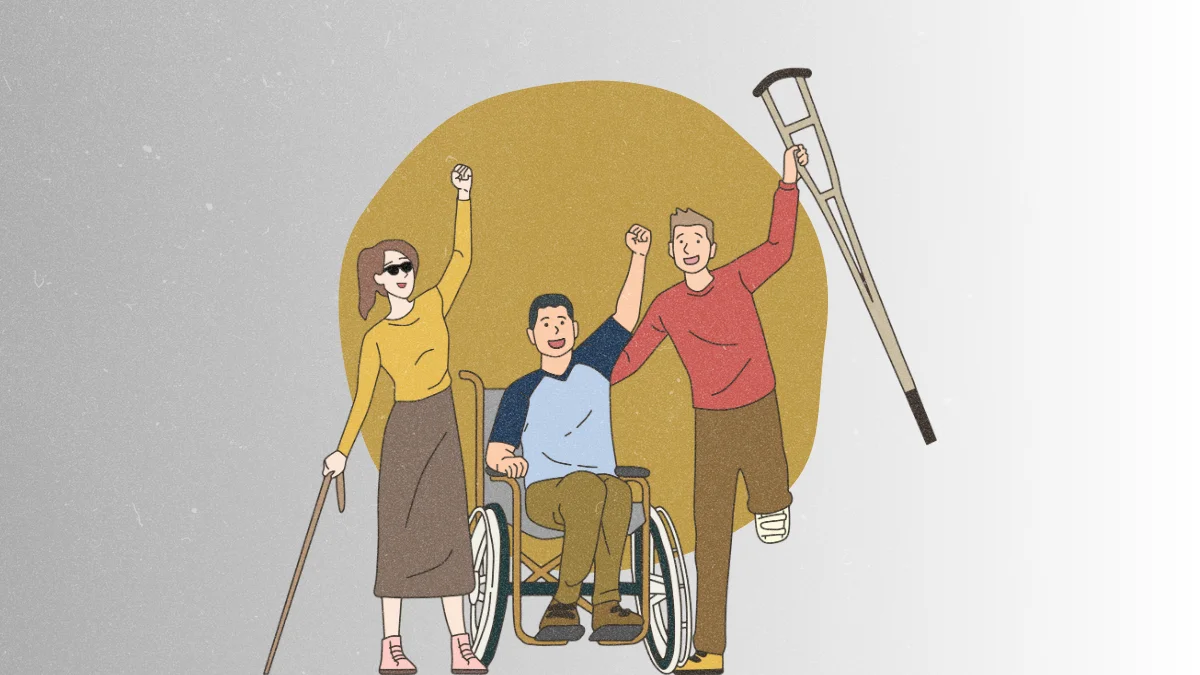Embarking on a journey with “Positive Affirmations for Disability” opens a door to a world where limitations transform into stepping stones, and perceived weaknesses become wellsprings of strength.
Imagine starting each day by whispering to yourself words of power and positivity, words that don’t just hover on the surface but dive deep into your being, igniting a flame of resilience and self-belief.
This isn’t about ignoring the challenges that come with disabilities; rather, it’s about facing them with a heart full of courage and a mind fortified by affirmations that remind you of your boundless potential.
Join me as we explore together how these affirmations can be your daily companions, guiding lights on a path to self-empowerment and acceptance.
Table of Contents
Affirm More: Positive Affirmations For Diseases.
Why Use Positive Affirmations For Disability?
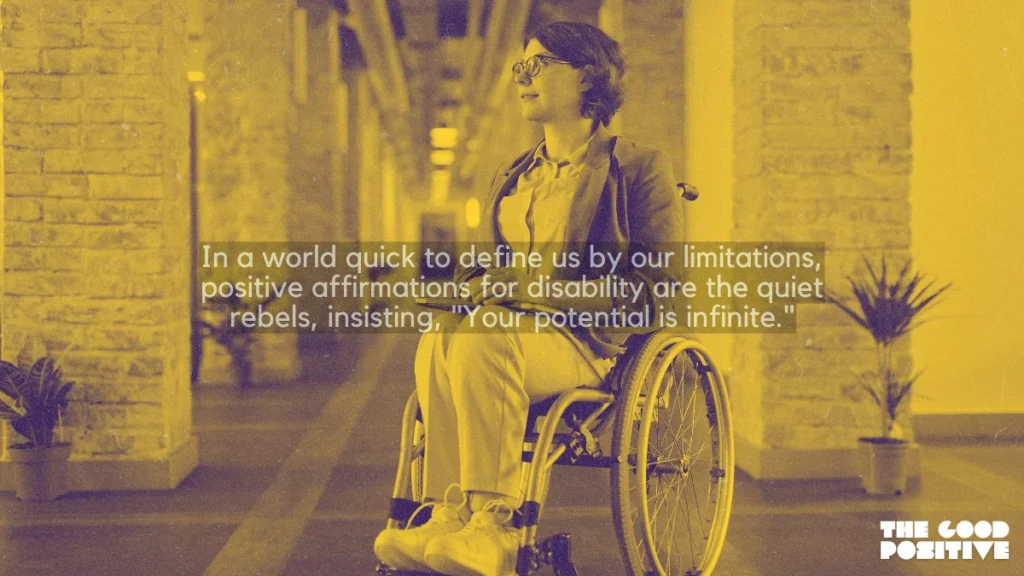
Why use positive affirmations for disability? The answer lies not just in the power of words but in the incredible journeys of those who’ve turned them into ladders reaching towards their dreams.
Take, for example, Stephen Hawking, who navigated the cosmos from his wheelchair, proving that physical boundaries couldn’t cage a boundless mind. His life whispers to us, “Limitations live only in our minds.”
Then there’s Frida Kahlo, who painted her pain and passion onto canvases, showing the world that creativity knows no barriers. Her story sings, “In our scars, we find our most profound stories.”
Positive affirmations for disability act as daily reminders that:
- You Are Capable: They reinforce the belief in one’s abilities, whispering, “You are more than your challenges.”
- Resilience is Key: Affirmations are the morning sun, melting away the doubts of yesterday, promising, “Every day is a new beginning.”
- Your Story Matters: They remind us that our journey is unique and valuable, echoing, “Your voice adds to the chorus of human experience.”
In a world quick to define us by our limitations, positive affirmations for disability are the quiet rebels, insisting, “Your potential is infinite.”
100 Positive Affirmations For Disability
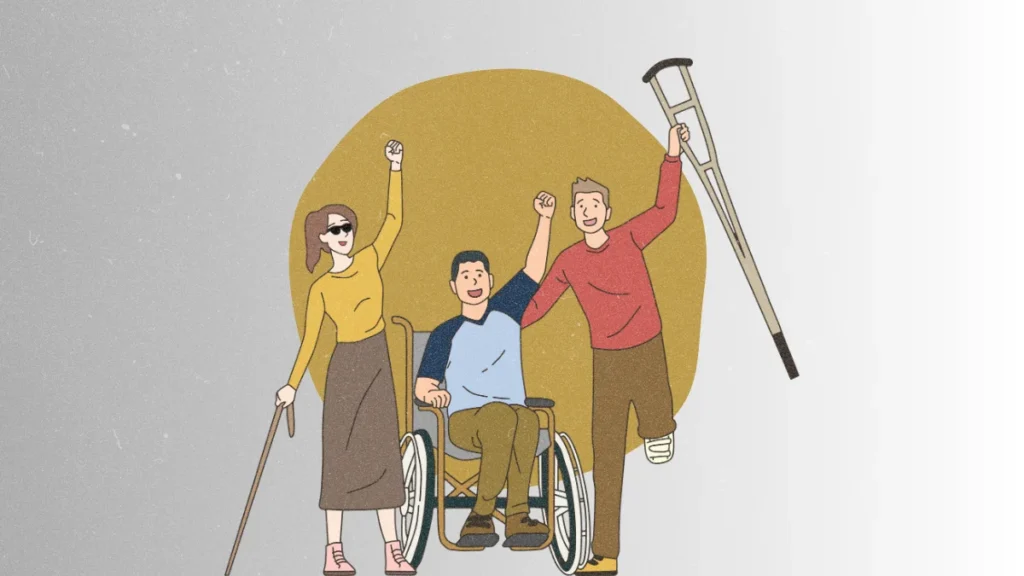
Dive into a treasure trove of “100 Disability Affirmations,” a collection curated with love and understanding.
Each affirmation is a beacon of light, designed to guide you through the fog of doubt and into the sunshine of self-belief. These aren’t just words; they’re companions for your journey, whispering courage into your days.
🔖 Bookmark this page, and let’s embark on a 21-day voyage together, reciting these affirmations daily. By the end of it, watch how these small seeds of positivity bloom into a garden of inner strength and confidence.
1. “I embrace my disability as a part of my unique journey.”
2. “My condition does not define my worth or capabilities.”
3. “I possess the strength to overcome any dysfunction.”
4. “My impairment teaches me resilience every day.”
5. “I celebrate the abilities I have, recognizing they define me more than my ailment.”
6. “Every day, I grow stronger in managing my disablement.”
7. “I find joy in the activities I can participate in, no matter how small.”
8. “My incapacity in one area fuels my creativity in others.”
9. “I respect my body’s limits and cherish its abilities.”
10. “My mind is a powerful ally in my journey towards wellness.”
11. “Physical challenges only deepen my appreciation for life.”
12. “Mental strength is my superpower, especially in times of stress and anxiety.”
13. “I am more than my sensory impairments; I am a whole person.”
14. “Every day, I learn new ways to adapt and thrive.”
15. “I define my life, not my mental illness.”
16. “Social connections enrich my life, beyond the physical or mental challenges I face.”
17. “My health is my priority, and I take proactive steps towards it.”
18. “A positive mindset guides me through my toughest days.”
19. “I visualize success in my personal and professional life.”
20. “Movement, in any form, is a celebration of my abilities.”
21. “My thinking is clear, and I make decisions that honor my needs.”
22. “Learning new things brings me joy and a sense of accomplishment.”
23. “I trust in my memory to hold onto the beautiful moments of life.”
24. “Self-care is a non-negotiable part of my routine.”
25. “I advocate for the services and treatments that best support my well-being.”
26. “Therapy is a tool that empowers me to live fully.”
27. “My brain is capable of incredible adaptability and growth.”
28. “Knowledge about my condition empowers me to live a better life.”
29. “I contribute valuable insights to my community.”
30. “Support from others enhances my strength and resilience.”
31. “My relationships are sources of joy and understanding.”
32. “I navigate through loss with grace and find new paths to fulfillment.”
33. “My vision for the future is bright and filled with possibilities.”
34. “I am a vital member of my community, disability and all.”
35. “My voice matters, especially in conversations about disability and inclusion.”
36. “I find strength in my story and share it to inspire others.”
37. “Disability is just one aspect of my multifaceted life.”
38. “I am capable of making a positive impact in the world.”
39. “My life is rich with experiences, lessons, and victories.”
40. “I celebrate every form of progress, no matter how small.”
41. “Gratitude fills my heart for the support and love I receive.”
42. “I am patient with myself and recognize my growth every day.”
43. “My creativity knows no bounds and transcends physical limitations.”
44. “I am confident in my ability to navigate challenges.”
45. “My life is a testament to resilience, strength, and courage.”
46. “I am deserving of love, respect, and understanding.”
47. “My disability adds depth to my character and perspective.”
48. “I am a master at adapting to new situations and challenges.”
49. “My spirit is unbreakable, and I face life with a smile.”
50. “I cherish moments of connection and understanding with others.”
51. “I am an advocate for myself and others with disabilities.”
52. “My journey is unique and filled with valuable lessons.”
53. “I am proud of who I am, disability included.”
54. “I inspire those around me with my resilience and determination.”
55. “My heart is open to giving and receiving love in all forms.”
56. “I trust the journey and believe in my ability to thrive.”
57. “My life is full of purpose, passion, and possibility.”
58. “I embrace challenges as opportunities for growth and learning.”
59. “I am surrounded by a community that supports and uplifts me.”
60. “My disability does not limit my ability to dream big.”
61. “I take pride in my achievements and celebrate each victory.”
62. “I am a beacon of hope and strength for others.”
63. “My experiences enrich my empathy, understanding, and compassion.”
64. “I possess the courage to face my fears and overcome obstacles.”
65. “I am a warrior, equipped with resilience and perseverance.”
66. “My voice contributes to a more inclusive and understanding world.”
67. “I am grateful for the perspective my disability gives me.”
68. “I find beauty in my strength and the battles I’ve overcome.”
69. “I am a continuous learner, always finding ways to adapt and grow.”
70. “I am resourceful and innovative in overcoming daily challenges.”
71. “I cultivate happiness and joy, regardless of physical or mental barriers.”
72. “I am deserving of all the good that comes my way.”
73. “I radiate confidence and positivity in every aspect of life.”
74. “My determination is stronger than any impairment or limitation.”
75. “I am an example of what is possible when you believe in yourself.”
76. “I find solace in the resilience of my spirit.”
77. “I am in control of my happiness and my life’s direction.”
78. “My potential is limitless, and I pursue my dreams with vigor.”
79. “I am a valuable contributor to discussions on health and disability.”
80. “I embrace my journey with an open heart and an open mind.”
81. “I am a source of inspiration, showing what’s possible with faith and persistence.”
82. “My disability has taught me the true meaning of strength and resilience.”
83. “I am surrounded by love and positivity, which fuel my journey.”
84. “I create a life filled with purpose, overcoming any obstacle.”
85. “I am defined by my abilities, not my disabilities.”
86. “I cherish each day and find joy in my accomplishments.”
87. “I am a beacon of hope and resilience to those around me.”
88. “My presence in the world makes a difference, just as I am.”
89. “I am strong, capable, and unstoppable in the pursuit of my goals.”
90. “I value and respect my body for all it enables me to do.”
91. “I am a leader in creating a more accessible and inclusive world.”
92. “My mind is a powerful tool that helps me navigate life’s challenges.”
93. “I am proud of the obstacles I’ve overcome and the person I’ve become.”
94. “I am at peace with my past and excited for my future.”
95. “I am a light for others, showing the way through darkness.”
96. “I embrace every part of me with love and acceptance.”
97. “I am a living testament to the power of positive thinking and resilience.”
98. “My disability enriches my life with depth, understanding, and courage.”
99. “I am filled with gratitude for the journey and the lessons learned along the way.”
100. “I am exactly who I’m meant to be, and I celebrate my unique self every day.”
How to Use Positive Affirmations for Disability?
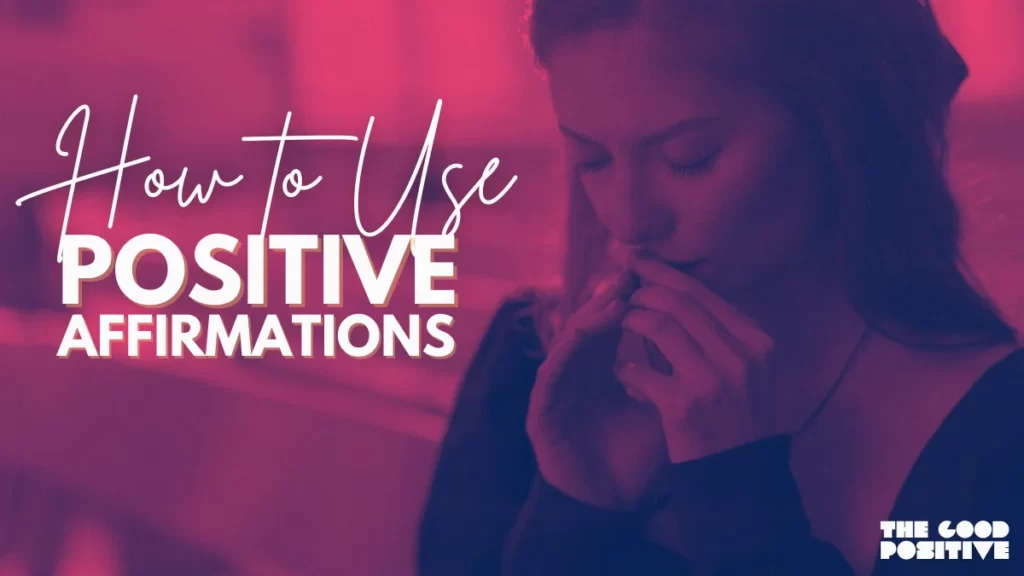
Embarking on the journey of positive affirmations for disability is like planting a garden in your mind, where each seed of affirmation grows into a resilient, blooming flower.
Here’s how to nurture this garden, step by step:
1. Start Your Day on a Positive Note: Before the world rushes in with its demands, take a moment to affirm your worth and strength. A simple, “Today, I embrace my abilities and celebrate my victories, no matter how small,” can set a positive tone.
2. Create a Personal Affirmation Space: Dedicate a corner of your room or a page in your journal for affirmations. This space will serve as your sanctuary, a reminder of your journey towards self-love and acceptance.
3. Repeat Affirmations with Feeling: It’s not just about saying the words but feeling them. Close your eyes, take a deep breath, and let the affirmation fill you with warmth and confidence.
4. Make Them Visible: Stick your affirmations on mirrors, walls, or any place you frequently look. Let these words be the last thing you see before you sleep and the first thing you see when you wake up.
5. Share the Journey: Connect with others on a similar path. Sharing affirmations can amplify their power, turning whispers of encouragement into roars of collective strength.
How to Write Affirmations for Disability?
Creating effective affirmations means crafting words that resonate with your heart. Keep them:
- Positive: Focus on what you want to feel or achieve, not what you want to overcome.
- Present Tense: Speak as if you’re living the affirmation now. “I am strong,” not “I will be strong.”
- Personal: Tailor your affirmations to your journey, your challenges, and your victories.
Remember, the most powerful affirmations are those that echo your inner truth, painting your path with strokes of courage, resilience, and hope.
FAQ’s
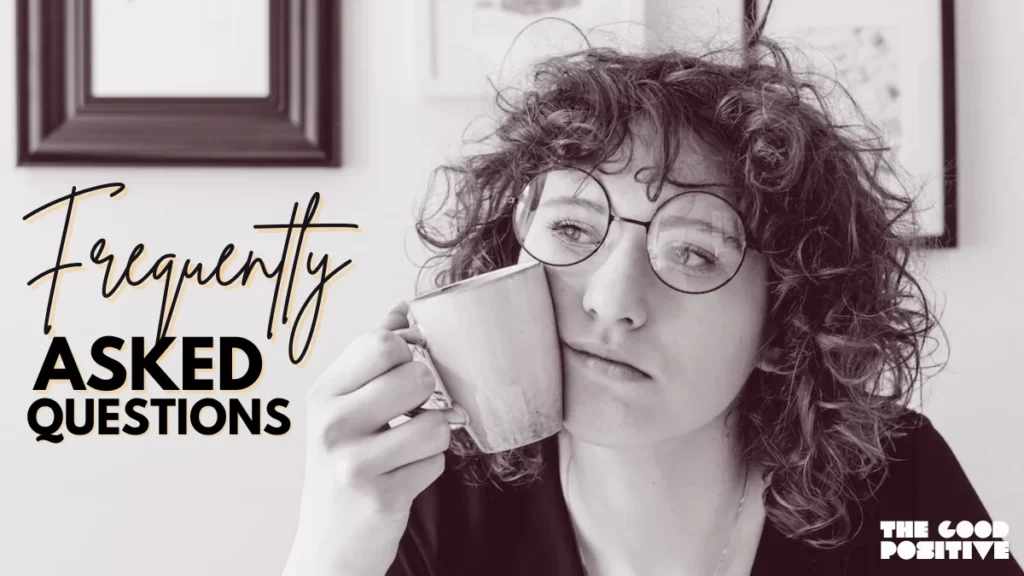
How do you encourage someone with disability?
Encouraging someone with a disability involves listening to them, acknowledging their feelings, and highlighting their strengths. Simple acts of kindness and offering support for their independence can be incredibly empowering.
What are powerful affirmations to say daily?
Powerful daily affirmations include “I am enough,” “I embrace the journey of becoming,” and “Today, I choose joy and peace.” Saying these helps shift your mindset towards positivity and growth.
What are positive affirmations for ill health?
For those facing ill health, affirmations like “My body is capable of healing,” “I am surrounded by love and healing energy,” and “Every day, in every way, I am getting healthier and stronger” can be uplifting.
What are positive statements for mental health?
Positive statements for mental health include “I control my thoughts, they don’t control me,” “I am deserving of happiness and peace,” and “I am resilient and can get through anything.”
How can positive affirmations help someone with a disability?
Positive affirmations can boost self-esteem, reduce stress, and promote a more positive outlook on life for someone with a disability. They reinforce a sense of capability and resilience, helping to focus on strengths rather than limitations.
What are the best positive affirmations for individuals with physical disabilities?
For those with physical disabilities, affirmations like “My disability does not define my abilities,” “I am adaptable and strong,” and “My challenges lead to greater innovation and creativity in my life” are incredibly powerful.
Can affirmations improve mental health for people with disabilities?
Absolutely! Affirmations can significantly uplift mental health by fostering a positive mindset, reducing stress, and enhancing self-esteem. They serve as gentle reminders of one’s worth and capabilities, especially on challenging days.
How often should someone with a disability recite positive affirmations?
Reciting affirmations daily is ideal, especially during your morning routine or any moment of doubt. It’s like mental exercise—the more consistent you are, the stronger your mindset becomes.
Are there specific affirmations for overcoming disability-related anxiety?
Yes, there are. Affirmations like “I am in control of my anxiety, not my disability,” and “I choose to focus on my strengths and capabilities” can be particularly soothing for disability-related anxiety.
How to create personalized affirmations for disability?
Start by identifying the areas you feel most challenged by, then craft affirmations that counter those feelings with strength and positivity. Use positive, present tense phrases that resonate with you personally.
What role do affirmations play in disability acceptance?
Affirmations can play a crucial role in the journey of accepting one’s disability. They help shift focus from limitation to the appreciation of one’s unique abilities and strengths, fostering a sense of pride and self-worth.
Can positive affirmations aid in the therapy of disabled individuals?
Indeed, they can. In therapy, affirmations are used as tools to combat negative self-talk and to build a more positive self-image, aiding in the overall therapeutic process by promoting resilience, self-acceptance, and a positive outlook on life.
How do affirmations impact the self-esteem of people with disabilities?
Affirmations can significantly boost self-esteem by reinforcing a positive self-image and mindset. They help individuals focus on their abilities and strengths, fostering a sense of pride and self-acceptance.
Are there community resources for sharing positive affirmations for disabilities?
Yes, there are many online forums, social media groups, and nonprofit organizations dedicated to supporting individuals with disabilities. These communities often share affirmations, stories, and encouragement to uplift each other.
What are positive affirmations for people with disabilities?
“I am defined by my strengths, not my limitations.”
“Every challenge I face makes me more resilient.”
“I am capable of achieving my goals in my own way.”
“I embrace my uniqueness and my journey.”
What are positive affirmations for depression?
“I am more than my emotions, and I have the power to overcome them.”
“I deserve love and happiness just as I am.”
“With each breath, I release the weight of sadness.”
“I am finding my way to peace and joy.”
What are positive affirmations for mental health?
“I am worthy of self-care and taking time for my mental well-being.”
“I allow myself to feel and then heal.”
“My mental health does not define me; it’s just a part of my journey.”
“I am surrounded by love and support, even when I feel alone.”
What are positive affirmations for mental strength?
“I am stronger than my challenges, and my mind is powerful.”
“I possess the courage to face anything that comes my way.”
“I control my thoughts; they do not control me.”
“Every day, I grow in mental strength and clarity.”
What are affirmations for chronic illness?
“I honor my body’s strength and resilience every day.”
“I choose to focus on what I can do, not what I can’t.”
“My illness does not define my entire being.”
“I am surrounded by love and support, healing a little more each day.”
What are most powerful health affirmations?
“Every cell in my body vibrates with energy and health.”
“I nourish my body with healthy choices and healing thoughts.”
“I am grateful for the ability of my body to heal.”
“My body is a temple of wellness, and I treat it with respect.”
What are affirmations for positive thinking?
“I radiate positivity and attract positive energy in return.”
“I see challenges as opportunities for growth.”
“I am a magnet for joy, health, and prosperity.”
“My mind is filled with thoughts that uplift and inspire me.”
What are mental health affirmations for students?
“I give myself permission to take breaks and recharge.”
“I am capable of overcoming academic and personal challenges.”
“My mental health is a priority, especially during exams.”
“I am surrounded by a community that supports and believes in me.”
Conclusion
As we wrap up our journey through the world of positive affirmations for disability, remember, these words are more than just letters strung together; they’re lanterns lighting up the path to your strongest, most vibrant self.
This article wasn’t just penned to share advice; it was crafted to empower you, to remind you that within you lies an unstoppable force of beauty and resilience.
So, as you move forward, let these affirmations be your steady companions, transforming challenges into triumphs. Here’s to you, leaving with a smile, ready to embrace the world with open arms and an open heart. ❤
Affirm More: Positive Affirmations For Difficult Colleagues.

Aldvin is the proud owner of “thegoodpositive.com.” A passionate writer and supporter of body positivity. Advocate of plus-size fashion. He’s mission is to curate the latest trends and timeless fashion for plus size women. He wants to inspire confidence and creativity through fashion, helping curvy women express their unique personalities with every outfit.

